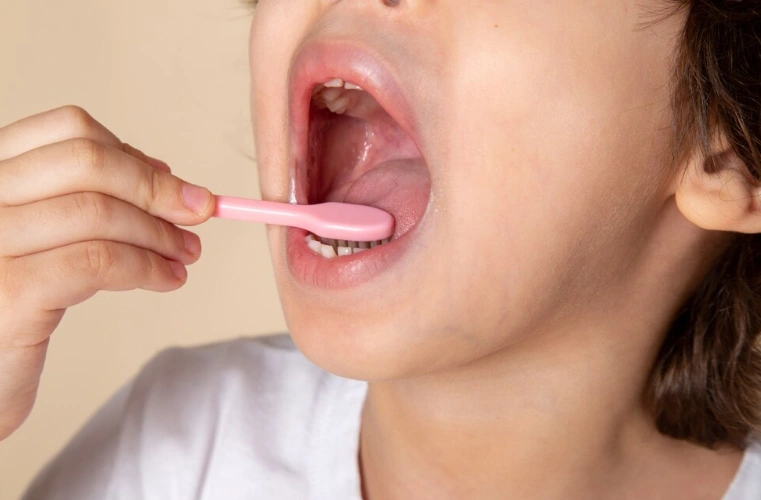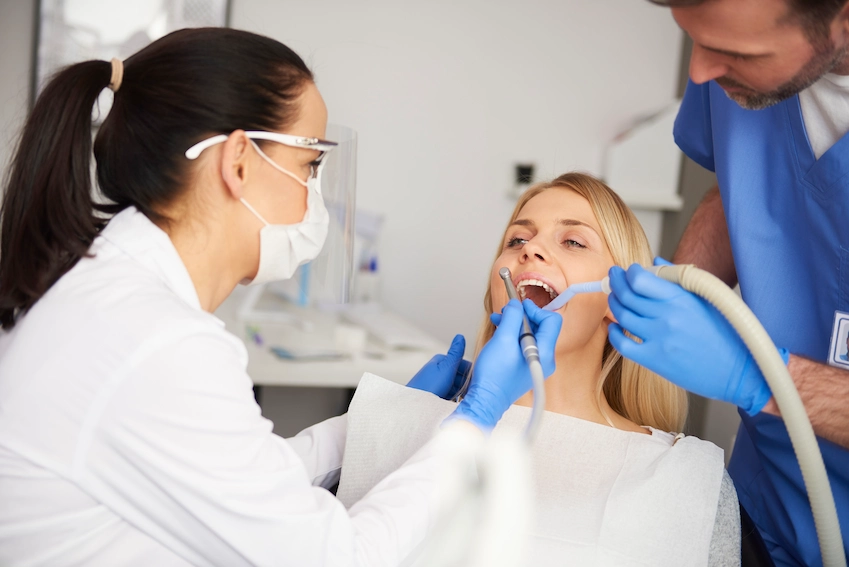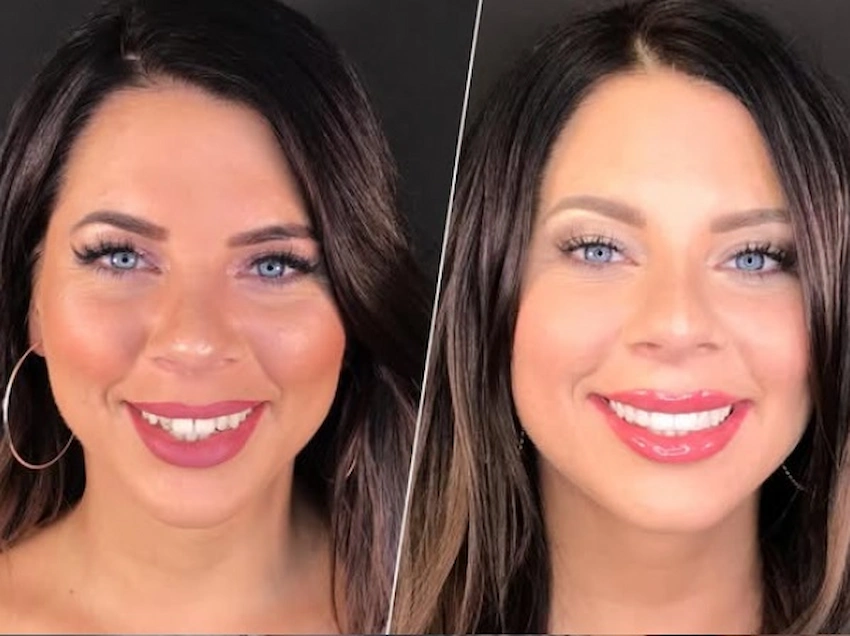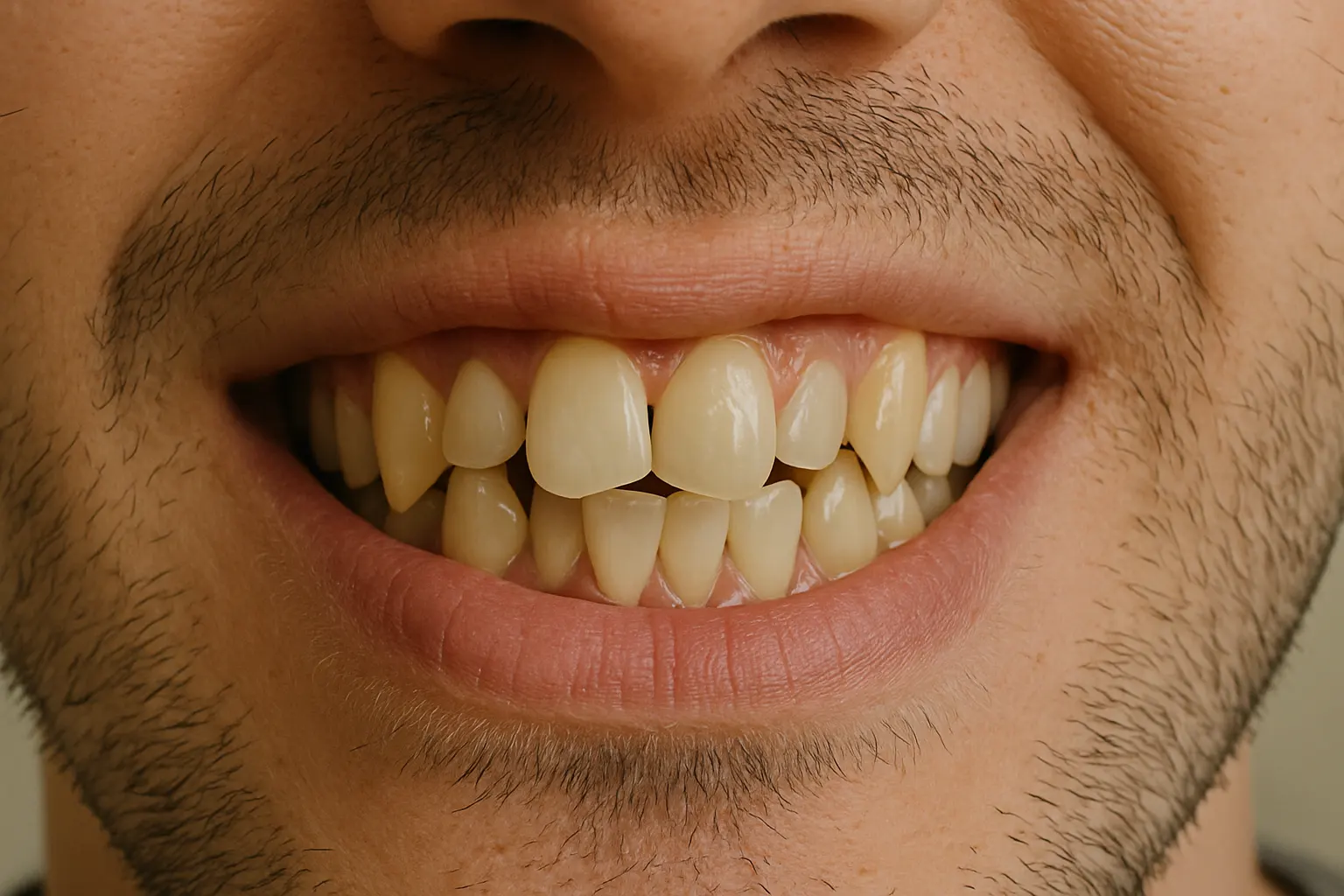⛔ Teeth Clenching: How Harmful Is It?
Teeth clenching can be a tiny and unnoticed habit, which seems to be a trivial thing, but contrary to that, it can lead to several severe mouth issues. The phenomenon of both day and night teeth clenching, also called bruxism, is the process of the forceful grinding of teeth and might be one of the root causes of enamel loss, jaw stress, and even general health repercussions.
If you think you might be clenching your teeth, don’t ignore the signs. Early diagnosis can save your teeth, relieve your jaw, and prevent serious issues later on. At Lema Dental Clinic in Istanbul, our expert dentists use advanced diagnostic tools and customized treatments—from night guards to a full-Hollywood Smile.
Our purpose in this article will be to uncover the nature of teeth clenching, guess its origin, and see the ways to prevent serious problems from occurring. If you’ve ever been through morning jaw muscle pain or you’ve found yourself squeezing your teeth due to a stressful incident, do not walk away from the information we will give you today!
What Is Teeth Clenching and Why Does It Happen?
Teeth clenching is a habit when you press your upper teeth against the lower ones strongly, without being aware of it in most cases. It can appear both in awake moments (mainly in stress-related situations) and in sleep. This repetitive compression may be taken as harmless at first, yet it will gradually cause your teeth and jaw to erode.
Teeth grinding is the action of rubbing your teeth back and forth, while clenching is the tight pressing against each other. Grind it out, and you are likely to deal with broken teeth, muscle pain, and some alterations in the shape of your teeth if you don’t take any measures in the early stages. Conclusively, an awareness of this behavior and a willingness to change it will be highly beneficial for your dental health.
Common Causes of Daytime and Nighttime Clenching
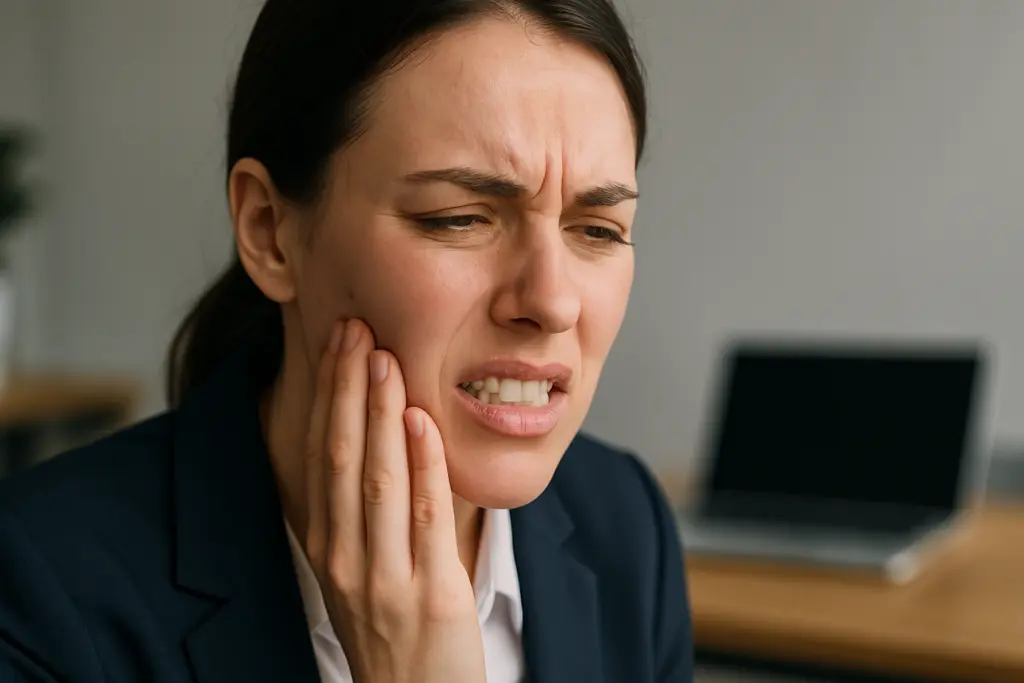
Stress. Mental tension is the main cause here. When life is too busy and the pressure is excessive—be it because of school, relationships, or just a daily anxiety—the bodily reaction to that state is teeth clenching. This response means your body is holding some strain, which can ultimately grow into such an unconscious move that you won’t notice and can’t control.
The act of clenching during sleep usually accompanies sleep disorders such as sleep apnea or interrupted REM cycles. The intake of coffee, alcohol, or any type of medication can also contribute to the problem of clenching. If you have been feeling muscle soreness or weakness in the jaw when you wake up, it can be a signal of the above-mentioned factors at work while you’re asleep.
Identifying Signs and Symptoms of Long-standing Teeth Clenching
You may not recognize it right away that you are clenching right away. The emergence of symptoms like pain in the jaw, tight muscles around the cheeks, or the sensation of a dull headache in the morning is the warning. The thinning of enamel due to the constant pressure of teeth grinding develops a situation where the teeth are very sensitive.
Some of the signs are also as follows: teeth may run the risk of being flattened or chipped, bite marks on the inside of the cheek, or a certain kind of noise in the jaw when chewing. These low-key symptoms are often put aside until they become significant issues, so it is more likely that you will feel your problem if you are aware of the sensations in your mouth as long as they appear.
Possible Threats That Clenching Poses to Your Teeth and Jaw
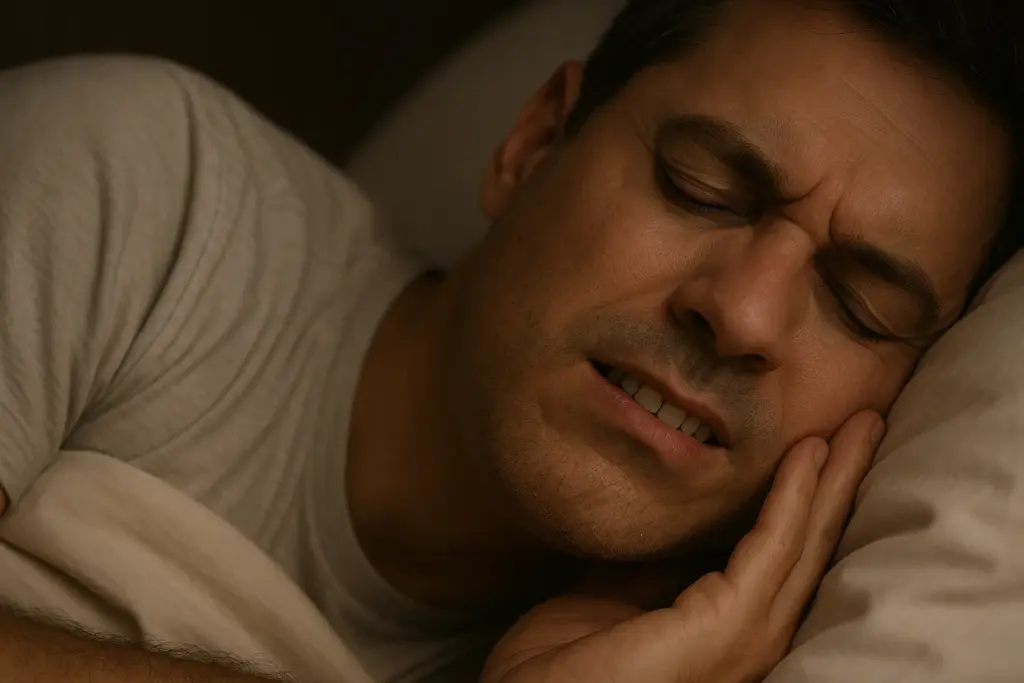
If you often clench your teeth, it should be noted that your teeth are not the only ones in peril, as the jaw also sustains great pain. In particular, dental health, such as with luck, vessels that have been rendered inactive, and broken support and teeth. More serious conditions also develop when such problems are ignored, such as bite changes and excruciating pains during chewing.
The overstraining of your jaw’s muscles can make them swell, which means that the painful condition, temporomandibular joint disorder (TMJ), can develop. In fact, there are disorders such as longstanding ache and pain in the jaw and also the tonsils, base of skull, the throat, and the neck. You may have no choice but to resort to orthodontic procedures or surgery in certain situations, as this is the only way to fix the possible damage.
Dentists generally detect clenching in patients by looking for signs of wear, asking about symptoms, and pushing for a sleep study at times. They may also examine the alignment of your bite and may check out the jaw muscles for tenderness.
Your treatment plan may take away night guards—these are custom mouthpieces that are worn while sleeping to stop teeth grinding—or muscle relaxants that help ease tension. Other things that patients can benefit from include physical therapy, Botox injections of the other jaw muscles to relax, or even orthodontic adjustments to correct the alignment issue that triggers the clenching.
How to Find Relief from Teeth Grinding and Take Care of Your Teeth
The first thing needed is awareness. Be conscious when clenching your teeth and make an effort to relax your jaw, especially when in stressful situations. You can also get some relief from muscle tension if you do some gentle massages, apply warm compresses, and do some jaw-stretching exercises.
The management of stress is a must. Practicing mindfulness, meditation, or even breathing exercises before going to bed can prevent nighttime clenching effectively. Besides, you should not take any caffeinated or alcoholic drinks in the evening hours, and it is important to talk to your dentist about getting a customized night guard.
FAQ: Teeth Clenching—How Harmful Is It?
Not quite. Clenching involves holding the teeth tightly together without movement, while grinding means rubbing them back and forth. Both fall under bruxism and can damage your teeth.
Morning jaw pain, headaches, or flattened teeth are common signs. A partner may also hear you grinding or clenching during sleep.
Yes, constant pressure from clenching can strain your jaw muscles, leading to soreness, tightness, and even migraines or tension headaches.
Dentists may suggest night guards, stress management techniques, muscle relaxants, or even Botox for severe cases. The best treatment depends on the cause.
Absolutely. Emotional stress is one of the top causes of daytime and nighttime clenching. Learning to manage stress is a key step toward relief.
